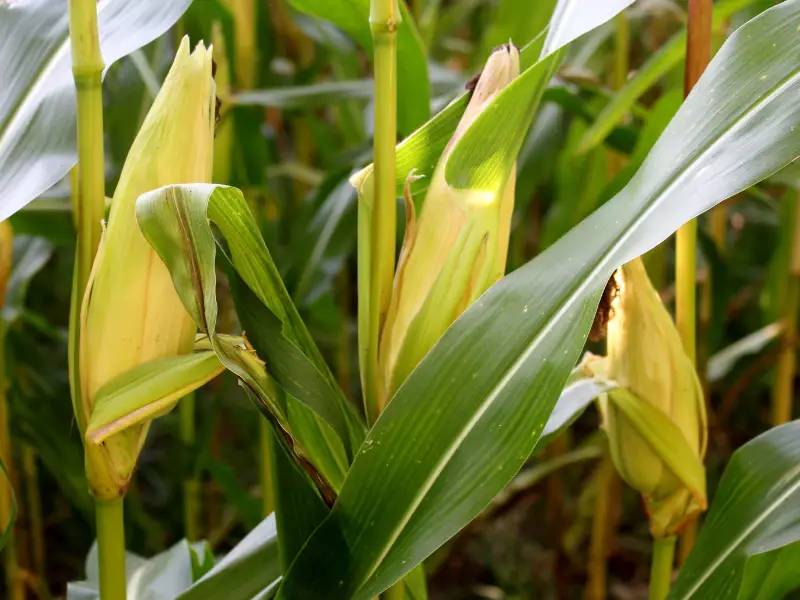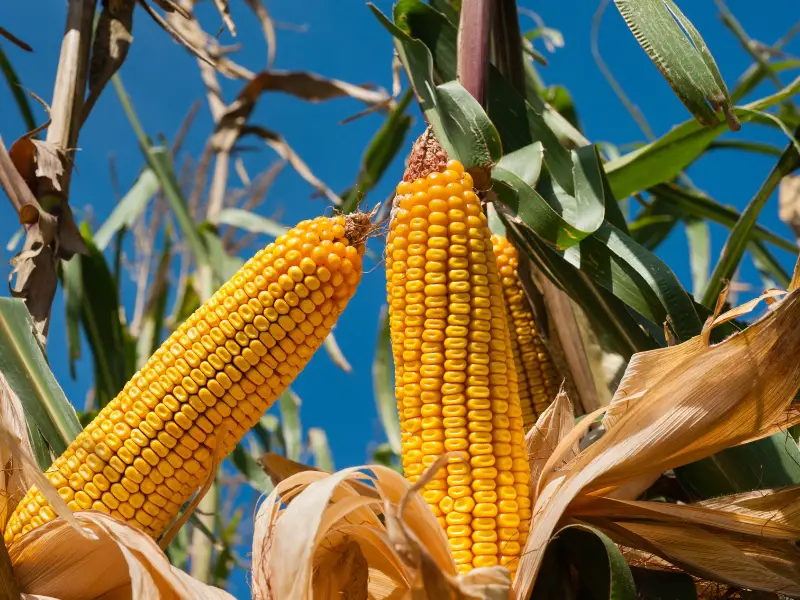Rabbits are herbivores and require a balanced diet of hay, vegetables, and fruits to maintain their health. However, not all fruits and vegetables are safe for them to consume. Corn is a popular vegetable that is often included in human diets. But, can rabbits eat corn?
Corn is safe for rabbits to eat in moderation. It can be a good source of carbohydrates, fiber, and vitamins for them. However, it should not be a staple in their diet. Rabbits require a high-fiber diet, and corn is low in fiber. Overfeeding corn to rabbits can lead to digestive issues such as diarrhea and bloating. It is important to introduce corn slowly into their diet and monitor their reaction to it.
Can rabbits eat cooked, canned, or dry corn?
Rabbits can eat corn, but it should not be a staple food in their diet. Corn is high in carbohydrates and low in fiber, which can cause digestive problems for rabbits if they eat too much of it.
Cooked corn is safe for rabbits to eat in moderation. However, canned corn should be avoided as it often contains added salt and preservatives that are not good for rabbits. Dry corn, such as popcorn, should also be avoided as it can cause choking or digestive blockages in rabbits.
It is important to note that corn should not replace hay and fresh vegetables in a rabbit’s diet. These foods provide essential nutrients and fiber that are necessary for a rabbit’s health. Rabbits should also have access to fresh, clean water at all times.
In summary, cooked corn can be given to rabbits as an occasional treat, but canned and dry corn should be avoided. Corn should not be a staple food in a rabbit’s diet and should not replace hay and fresh vegetables.
Risks of Feeding Corn to Rabbits

Corn is a popular food that is often fed to rabbits. While it is true that rabbits can eat corn, there are some risks associated with feeding corn to your pet.
One of the main concerns with feeding corn to rabbits is that it is high in starch. This can cause digestive problems, such as bloating, gas, and diarrhea. Rabbits have sensitive digestive systems and can develop serious health issues if they consume too much starch.
Another risk of feeding corn to rabbits is that it is low in fiber. Fiber is an essential nutrient for rabbits and helps to keep their digestive system healthy. A lack of fiber in a rabbit’s diet can lead to a condition called gastrointestinal stasis, which can be fatal if left untreated.
Furthermore, corn is also low in protein, which is another important nutrient for rabbits. A diet that is low in protein can lead to muscle wasting and other health problems.
In summary, while corn can be fed to rabbits in small amounts, it should not be a significant part of their diet. It is important to provide rabbits with a balanced diet that includes plenty of hay, fresh vegetables, and a limited amount of pellets.
What to do when your rabbit ate corn?
If your rabbit has eaten corn, there are a few things you can do to ensure their safety and well-being. Here are some steps to take:
- Monitor your rabbit: Keep an eye on your rabbit for the next few hours after they have eaten corn. Look for any signs of discomfort, such as bloating, diarrhea, or vomiting.
- Check the amount of corn consumed: If your rabbit has only eaten a small amount of corn, it is unlikely to cause any harm. However, if they have eaten a large amount, it can cause digestive problems.
- Provide plenty of water: Make sure your rabbit has access to plenty of fresh water. This will help to flush any toxins out of their system and prevent dehydration.
- Offer hay: Offer your rabbit some hay to help aid digestion. This will also help to keep their teeth healthy.
- Contact your veterinarian: If you notice any signs of discomfort or if your rabbit has eaten a large amount of corn, contact your veterinarian. They can provide advice on how to proceed and may recommend bringing your rabbit in for a check-up.
Remember, while corn is not toxic to rabbits, it should only be given in small amounts as a treat. A diet high in corn can lead to digestive problems and other health issues.
What Other Food Alternatives You Can Give?
While corn is a safe vegetable for rabbits, it’s not the only food they can eat. Here are some food alternatives you can give to your furry friend:
Vegetables
Rabbits can eat a variety of vegetables, including:
- Carrots
- Bell peppers
- Cucumbers
- Broccoli
- Brussels sprouts
- Kale
- Spinach
- Radishes
It’s important to introduce new vegetables gradually to avoid digestive issues. Also, make sure to wash them thoroughly before feeding them to your rabbit.
Fruits
Fruits are a great source of vitamins and minerals for rabbits. Some of the fruits rabbits can eat include:
- Apples
- Bananas
- Blueberries
- Pineapple
- Strawberries
- Watermelon
However, fruits are high in sugar, so it’s important to feed them in moderation.
Hay
Hay is an essential part of a rabbit’s diet. It provides fiber, which helps with digestion and prevents hairballs. Timothy hay is a good option for adult rabbits, while alfalfa hay is better for young rabbits.
Pellets
Pellets are another important part of a rabbit’s diet. They provide essential nutrients that are not found in hay or vegetables. However, it’s important to feed them in moderation, as overfeeding can lead to obesity.
Water
Water is essential for a rabbit’s health. Make sure to provide fresh, clean water at all times. You can use a water bottle or a bowl, but make sure to clean it regularly to prevent bacteria growth.
In summary, rabbits can eat a variety of vegetables, fruits, hay, and pellets. It’s important to introduce new foods gradually and to feed them in moderation to avoid digestive issues and obesity.
Related Articles:

